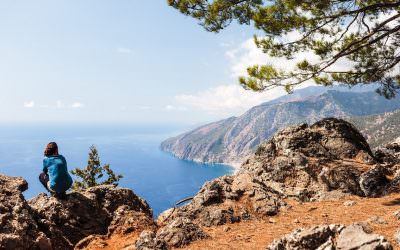In today policies of ecotourism, “natural heritage” is considered a universal good to be protected for its social, aesthetic, economic, historic and natural value. This trend requires an area to evidence a combination of various criteria: landscape quality, scenic quality, relative wildness, relative tranquility, natural heritage features and cultural heritage. In a generalized effort to see natural resources as a key asset for the redefinition of a “global hierarchy” of eco-touristic values, specific sites and landscapes are reshaped as tangible and intangible “goods”, classified as natural reserves, aboriginal sacred places, or revalued as “authentic” cosmologies, traditions and memories inherited from the past. However, the link between heritage, tourism and nature is anything but obvious. Entanglements between heritage, visitors and the ecosystem are affected by the different modes of relations that individuals and collectives establish with the world they live in, and with their more-than-human surrounding. And above all, they are the always unstable result of complex dynamics of appropriation, symbolic and material reconfiguration, and economic valorization that operate on both a local and global scale.
Focusing on key anthropological concepts, theories and methods, this course will offer a deep understanding of the historical, cultural and political assumptions behind the establishment or candidature of ecological zones as touristic destinations through the analysis of various case studies: indigenous, post-industrial areas, wildlife management and wilderness zones, coastal and marine environments, community-conserved areas, and land-trust preserves. The course is designed to take into consideration global environmental trends and touristic consumption strategies as well, and the ways they are negotiated by different groups, i.e. environmental organizations, development agencies, policymakers, local representatives, etc.
In particular, seminars and on-site activities will give students the chance to:
- Become familiar with key concepts and theories related to heritage construction and tourism in anthropology;
- Learn how to proactively contribute to contemporary debates over sustainability, natural conservation and ecotourism;
- Acquire informed ethnographic knowledge about the moral implications of cultural projects that introduce visitors to indigenous ways of life and ecosystems, with a specific focus on the Mediterranean;
- Reflect on the opportunities, challenges and risks of ecotourism at global and local scale.
This is an interactive teaching style course. Classes will consist of seminars, film screenings, individual and collective discussion papers, special guests’ lectures, on-site fieldwork experiences, and a final assignment. Students’ general attendance, consistence, punctuality, and personal contribution to daily activities significantly shape their overall assessment and final grade.



